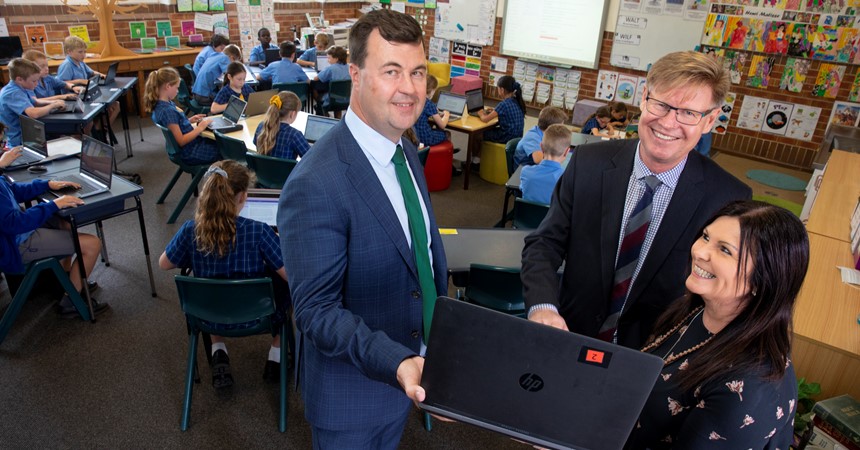The Diocese of Maitland-Newcastle is more than halfway through a three-year digital transformation in which it is building an advanced analytics and data science platform.
In partnership with Microsoft, the data and analytics student intelligence project is working toward user-directed analytics to ensure evidence-based insight drives action and targeted interventions that enable parents and teachers to focus their efforts more acutely, and support all students to achieve their full potential. Using the tech giant’s Azure-based solution, the Catholic Diocese of Maitland-Newcastle relies on a data lake and advanced analytics to explore drivers of student learning of the almost-20,000 students in the Diocese’s 58 schools.
Analytics help the Diocese better understand student growth and cater for intervention when needed, for either struggling or excelling students. This will be invaluable in motivating a child to reach their full potential. Using the attributes we’ve built around a student, we believe we can predict a primary school student’s performance in the HSC or Year 12. It means targeted interventions can start in primary school to help, support, and prepare each student for HSC. The in-depth analysis of more than 20 years of historical education data from various sources helps identify gifted students and give insight on targeted interventions for those students that might need additional support. The aim is to ensure student growth and that every student achieves their full potential.
The analytics platform is already providing insights that may otherwise have been missed in isolation. For example, by analysing the data we were able to investigate the question of gender stereotyping regarding math and science subjects. Research studies have repeatedly reported that math and science are perceived as male domains and scientists as predominantly male. With respect to gender differences, our findings have shown that among female students, their math and science marks do not differ significantly, meaning that female students rated similarly strongly as male students.
The attributes include the expected – classes, teachers, academic performance, and attendance – but also add things such as the year they started school, and schools previously attended. We also have an understanding of the socio-economic status and external assessment records, ie NAPLAN, PAT, HSC, and CogAT.
Chief executive Sean Scanlon says the decision to set up a data and analytics capability was born of a desire to improve educational outcomes.
“It needed to be something where we had evidence and rational data, and analyse that data to understand how we were performing so we could target each and every child's education,” Mr Scanlon says.
The Diocese has always collected data about student performance, but it was often siloed, difficult to access, and scattered through an array of disparate source systems and spreadsheets. It provided an incomplete picture of student performance and progress.
“Without measuring those things, we couldn't hold people accountable and we couldn't see what we were achieving, and we couldn't set targets for improvement,” Mr Scanlon says.
The Diocese believes data will also play an important role in generating optimal outcomes for its work in social services, supporting people in need and the vulnerable.
“We can measure improvement to people’s lives or programs that have targeted a need,” Mr Scanlon says. “This allows us to then go to the government and say, ‘Look, here's the evidence. Here's the data we've analysed that proves our programs work’.”
Paul Greaves, assistant director of the Maitland-Newcastle Catholic Schools Office and project sponsor for the data and analytics student intelligence project, says specific targets have been set around improving student academic achievement.
“The creation of a ‘Leading Learning Collaborative’, which integrates the work of world-leading education researchers such as Lyn Sharratt and Michael Fullan, is the vehicle we have designed to carry this initiative, and the fuel in the tank is data mixed with self-service analytics,” Mr Greaves says.
“The student intelligence project is changing the way our system leaders, principals and middle leaders interact with data and analytics as it addresses a number of pain points we were previously experiencing.”
NAPLAN tests have generally provided a level set for schools to gauge students’ performance and the potential need for extra help. But there were no NAPLAN tests in 2020. The student data the Diocese has collected provides an alternative measure of student progress.
Mr Scanlon says the student intelligence project provides an opportunity to bring kids back on track if they're falling behind or if there are other issues.
“We have more dimensions to this than NAPLAN has targeted,” says Mr Scanlon. “The wellbeing aspect, for example. This allows us to have greater insight and therefore to act more quickly.”






















































































